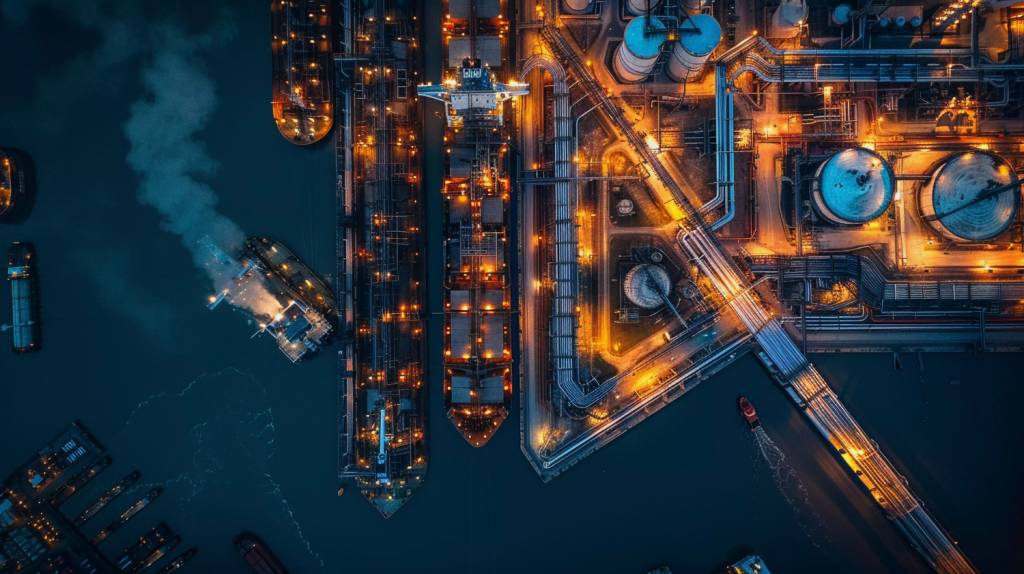🔗 Introduction
In Nigeria, energy security isn’t just about production—it’s about transportation. With vast oil and gas reserves spread across the Niger Delta and beyond, the country depends heavily on pipelines to move crude oil, natural gas, and refined products to refineries, export terminals, and end users. Pipeline infrastructure is the invisible backbone of the nation’s energy supply chain.
Yet, despite its importance, pipeline systems remain one of the most underdeveloped and vulnerable assets in Nigeria’s oil and gas sector. In this post, we explore why strengthening pipeline infrastructure is essential for Nigeria’s energy security and economic stability.
🛢️ 1. Pipelines Enable Efficient Transport of Oil and Gas
Pipelines offer the safest, most cost-effective, and environmentally friendly means of transporting large volumes of oil and gas across long distances. Nigeria produces over 1.3 million barrels of crude oil daily, much of which must be transported from inland fields to coastal export terminals like Bonny, Forcados, and Escravos.
Without a robust pipeline network, the country risks:
- Transport bottlenecks
- Higher operational costs
- Delays in product delivery
- Reduced export earnings
By contrast, pipeline infrastructure allows 24/7 flow, faster product movement, and reduced dependence on trucks or barges, which are prone to accidents and inefficiency.

🔥 2. Supporting Domestic Gas Utilization & Power Supply
Nigeria is home to 203 trillion cubic feet (tcf) of proven gas reserves, making it one of the top 10 gas-rich countries globally. However, only a fraction is utilized due to inadequate pipeline connectivity between production sites and power plants or industrial hubs.
The completion of the Ajaokuta–Kaduna–Kano (AKK) pipeline, for instance, is expected to:
- Supply 2 billion standard cubic feet per day (scfd) of gas
- Power electricity plants in the north
- Attract new industries to gas-dependent zones
- Enhance regional energy access
More pipelines mean more reliable power, fewer blackouts, and stronger support for manufacturing, agriculture, and technology sectors.
⚠️ 3. Combating Oil Theft and Sabotage
Nigeria loses an estimated 400,000 barrels of oil per day to theft and pipeline vandalism—costing the economy over $1 billion monthly. These illegal activities not only reduce revenue but also:
- Cause oil spills and environmental disasters
- Disrupt power supply and refinery operations
- Increase operational risks for oil companies
Upgraded pipeline systems equipped with smart sensors, surveillance drones, and automated shut-off valves can deter tampering and quickly identify breaches. Strengthening security partnerships and investing in modern infrastructure is vital to reducing these losses.
🌱 4. Ensuring Environmental Protection and Safety
Old or poorly maintained pipelines are prone to leaks and ruptures, which contribute to oil spills, gas flaring, and loss of biodiversity—especially in sensitive areas like the Niger Delta.
By investing in newer, corrosion-resistant, and technology-enabled pipelines, Nigeria can:
- Minimize environmental degradation
- Improve emergency response time
- Build public trust in oil and gas operations
- Align with global ESG and sustainability standards
📈 5. Attracting Foreign Investment and Boosting Exports
Global investors and energy companies increasingly look for stable, efficient, and secure transportation systems. A well-developed pipeline network:
- Reduces export delays
- Lowers operational risks
- Builds confidence in Nigeria’s energy value chain
With the upcoming Dangote Refinery and other major projects ramping up, enhanced pipeline capacity will be critical to transporting crude and distributing refined products for domestic and international markets.
🚀 Conclusion: Building for the Future
For Nigeria to fully unlock the potential of its oil and gas resources, pipeline infrastructure must become a national priority. It’s not just about moving products—it’s about securing energy access, boosting the economy, protecting the environment, and powering development for generations to come.
The future of Nigeria’s energy security is buried beneath the ground—inside the pipelines that connect opportunity to impact.



